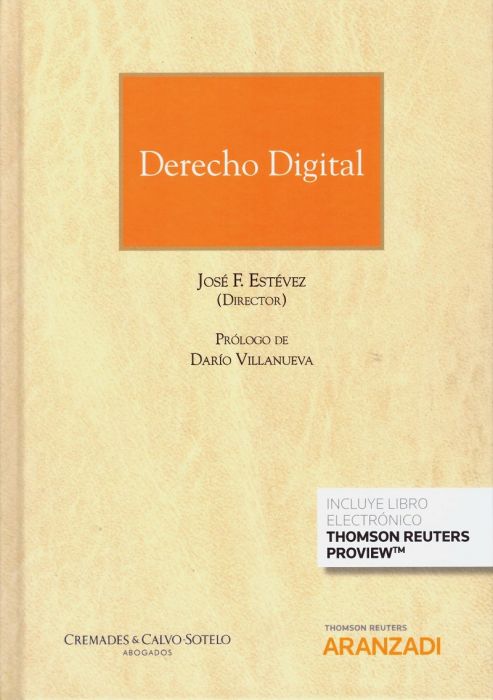Digital Law
Editorial Aranzadi, S.A.U.
2019
518 páginas

Information technologies are one of the foundations of the Economy and the Knowledge Society. The strength of e-commerce, the streamlining of electronic payment systems, the emergence of apps and smartphones have led to a clear change in business models, placing creativity and entrepreneurship as the cornerstone of the development of modern society and an indispensable engine of economic growth.
The consequences of the emergence of Over the Top services and Web 2.0, in which social networks have become the epicenter of interpersonal relationships; collaborative economy platforms as a consumption alternative and content hosting services as a gateway to culture, are just some of the disruptive examples that are a direct consequence of the expansion of the Internet and the interconnection between people and goods and services, known as the Internet of Things “IoT”.
The purpose of this book is to provide a legal response from a multidisciplinary perspective to the new opportunities and challenges posed by the strong implementation of the Information Society. To this end, Cremades & Calvo-Sotelo Abogados, a pioneering firm for more than 20 years in the Law of New Technologies, has sought to shape, together with the prestigious legal publisher Aranzadi, the response to the incipient legal framework raised by the new legal horizons of the digital era.
The impact of the approval of the European Data Protection Regulation on the privacy of the individual; the legal regime of the services of the Information Society in the context of e-commerce; the use of new technologies in the labor field; the implications of the development of electronic justice and e-government in the framework of the Public Administration; cybersecurity and new forms of online crime; or the main intellectual property challenges posed by the development of new technologies and the consumption of content on the web, are just some of the issues analyzed in this handbook.
This book is especially aimed at all those legal professionals who wish to be updated and know the basic news of Digital Law from the perspective of the main branches of law that make up our legal system.
To this end, lawyers from the different specialized areas of the firm analyze in this book the legal framework posed by the standardization of the use of Information and Communication Technologies in the contemporary social fabric. The manual exposes the essential legal aspects that have been affected as a direct consequence of the digitalization of society, promoting debate and reflection, since the law, as it cannot be otherwise, has to adapt to and satisfy the new demands and regulatory problems that the society of our time is facing.
